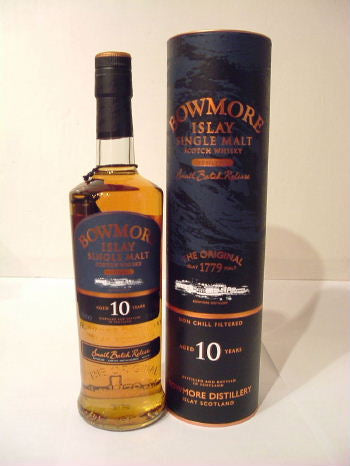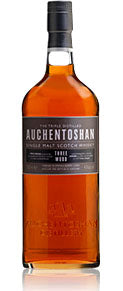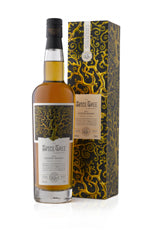Normally this spot in our newsletter highlights one of our in-house barbecue or fireplace experts. This month, we're doing something different and are featuring someone else's expert.

Andrew (who may or may not be pictured above) works for Calgary's Kensington Wine Market (Calgary's largest collection of single malt don't you know) and is their whisky expert.
His job is to taste a lot of whiskeys and provide his clientele with his opinions on same. Yes, you're right, that's a very civilized way to be employed. Now, I know which newsletter is your absolute favourite. However, you really must check out Andrew's 'Malt Messenger' newsletter. More passion than a stack of Danielle Steele novels.
Try and read it without wanting to go out and have a snort or two of Scotch - I dare you. Andrew is a walking, talking Scotch encyclopaedia so we thought, for this whisky themed edition of The Hot Line, we'd get his take on the intersection of Scotch and barbecue:

Us: Some recommend drinking scotch instead of red wine with steak. Your thoughts? Any recommendations on which type of scotch might be preferable with a big fat rib-eye?
Andrew: The key to pairing a whisky or a wine with something like a big fat rib-eye is to find something that pleasantly compliments or contrasts with it.
As a general rule of thumb I would also stick to a whisky with a little bit of peat or smoke. The extra flavour the peated barley imparts will help it stand up to the robust flavours of the meat. I would also go with a cask strength whisky (something 46% ABV or higher) the additional strength will make the fats in the steak melt in your mouth.
If the goal is to compliment the rib-eye then you would aim for whisky that is buttery, gamy and earthy. Something like the Bowmore Tempest ($81.99/exclusive to KWM) which has a lovely creamy palate with loads of vanilla, tropical fruits and a touch of smoky sea salt. If you are looking for more of a contrast you would want to pair the steak with something spicy and rich.
The Springbank 1996 KWM Oloroso Cask ($109.99 bottled exclusively for KWM) would be the best option. It is spicy, caramelize and rich with loads of dark fruits and soft smoke and hints of sea breeze. (editors note: See that? "Sea Breeze"? I told you: you want to try that dont' you?)

Us: Any favourite grilling recipes that involve scotch?
Andrew: With the exception of chicken or ribs I am a fan of letting the meat's flavours speak for themselves. I don't know if I have a favourite grilling recipe, but my favourite grilled meal would be: Beef Side Ribs, Taber Corn, asparagus and a Caesar salad.
I generally marinate the beef side ribs for a few hours or more in beer, a strong lager 6%ABV or higher helps to tenderize the meat. I then like to add a whisky-based BBQ sauce (there are lots of recipes online).
I also grill the corn and asparagus and make for the salad I make croutons and dressing from scratch. On a hot day I would pair a meal like this with a refreshing whisky from Auchentoshan or Arran distilleries.
The Auchentoshan 3 Wood ($73.49, sweet and spicy with soft citrus notes) for something complimentary or the Arran 10 Year ($53.99, creamy, soft and refreshing) for something a little different.

Us: Do you suggest 'seasonal' scotch selection (ie. smoother, lighter scotches in the summer and heavier, peatier scotches in the winter)? If so, do you have a recommended 'summer scotch'?
Andrew: Whisky like wine or beer is very much a mood based beverage. Time of year, weather, temperature and your mood can really influence what you want to drink and when.
Heavily peated, medicinal whiskies are really satisfying on cold damp, wet days, but can be a bit much in the dog days of summer. I generally like whiskies that are lighter and more refreshing in the summer, mainly ex-Bourbon cask and unpeated.
Arran 10 Year ($53.99, creamy, soft and refreshing) is an excellent choice, and also a great buy. Another pick would be something like the Compass Box Spice Tree ($63.99, lush round sweet vanilla, and gentle syrupy spices) which isn't a single malt or a blended whisky but rather a blended malt.
At the end of the day though, it depends on your own tastes, everyone's palate is different, as well as what you're pairing it with. The Arran 10 is a great dram, but it would be completely overwhelmed by a big piece of meat. In that case a smokier choice would still be the best option.
Us: What do you think will happen with the Canadian industry? Are there any signs that it will become more 'artisanal'?
Andrew: There are some artisanal distilleries starting up in Canada, but they are still a few years off. Sadly, the only true Rye whisky in Canada is Alberta Premium made in Calgary.
Canadian whiskies are mainly the product of corn. The best rye whiskies are currently coming out of the states and are very rare/expensive.


















